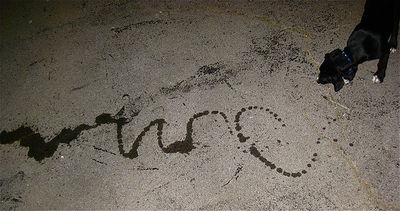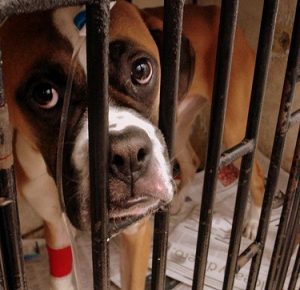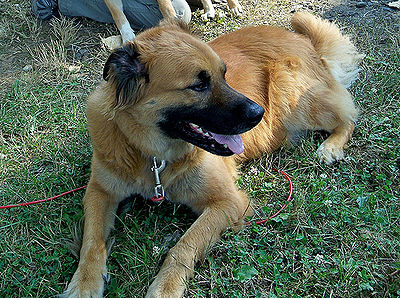
Incontinence in pets can be caused in a number of ways.
Young animals may have a birth defect with one or both ureters which carry urine from kidneys to the bladder. Dog breeds prone to this defect are Siberian Huskies, Miniature Poodles, Collies, Labrador Retrievers, West Highland White Terriers, Welsh Corgis, Wire-haired Fox Terriers. It is also more common in female dogs.
UTIs (urinary tract infections) can also cause incontinence. Blockages in the urethra such as stones or a tumor can cause urine buildup. This is an emergency situation as it can be fatal in 3 or 4 days if left untreated.
Incontinence can be hormone-related in female dogs and cats that have been spayed. They urinate normally, but leak urine at other times. It can occur in neutered male pets but is much more common in females.
Female animals in general are more prone to incontinence and related problems due to their shorter urethra.
Female dogs can have vulvovaginal stenosis – the vagina narrows where the urethra ends. Urine is trapped in the vagina. When the dog rises from a down position, the urine rushes out. Sometimes stretching the narrowed area, performed under anesthesia, can help.
Aging can be a factor, causing weak bladder control or diseases that cause a pet to create more urine.
If your pet is incontinent, s/he needs to be examined by a veterinarian. Here are some questions you should be prepared to answer at the vet’s.
- At what age did the incontinence begin?
- When does it occur – at rest or during activity?
- Was your pet spayed or neutered?
- Has your pet undergone any surgeries or have any illnesses?
- Is your pet taking any medications?
- How much water does your pet drink?
Your pet will undergo urine tests, blood tests, perhaps x-rays or ultrasound to determine the reason for the incontinence. Depending on the cause, surgery or medications may be advised. Medications may be given on a trial basis, adjusting dosage and watching for side effects.
A change in diet may help. Grain-free raw or freeze-dried diets seem to work well. There are also holistic remedies that are safe and certainly worth trying.
If you suspect that your pet is ill, a visit to the veterinarian is very important. Early detection of a problem can have a successful outcome.
Our cat Sasha, a neutered male suffered a blockage. He leaked urine but could not urinate properly. The treatment by the vet was surgical removal of his penis which solved the problem. Our vet also informed us that this is not uncommon in neutered males. He suggested adding a bit of salt to Sasha’s food to encourage him to drink more water. Happily, Sasha recovered and lived long after the surgery.
Related Articles



